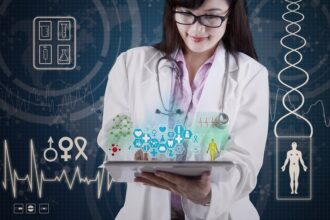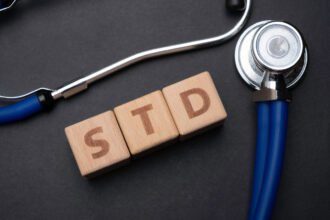The intersection of healthcare innovation and personal injury law is reshaping how attorneys approach cases and how patients recover from injuries. Healthcare advancements, from telemedicine to wearable devices, are not only improving the way patients heal but also influencing the legal strategies used in personal injury claims. Personal injury law relies heavily on accurate medical evidence to support claims of damages, and new technologies are providing more reliable, real-time data for attorneys to use in court. As healthcare evolves, so too does the approach to legal proceedings, making it easier for both patients and lawyers to achieve favorable outcomes.
Personal injury lawyers, who typically work with medical records and expert testimonies to establish the extent of injuries, now have access to innovative healthcare tools that provide more accurate data and help prove the impact of an injury on a person’s life. As the healthcare industry becomes increasingly digital, these advancements not only streamline patient recovery but also offer lawyers a clearer path to determining liability and compensation. By integrating these healthcare innovations into their practices, personal injury lawyers can improve case outcomes, providing stronger, more compelling arguments for their clients.
Healthcare Innovations Impacting Recovery
According to donaldsonweston.com, telemedicine has emerged as a game-changer for patient recovery, especially in the wake of physical injuries. In the context of personal injury law, telehealth provides a way for patients to have regular check-ups and follow-up consultations without needing to visit a doctor’s office. This remote accessibility ensures that patients have consistent care while also generating a record of their treatment progress that can be used in legal proceedings. For personal injury lawyers, this is a boon as it offers real-time evidence that can support claims regarding ongoing pain or delayed recovery, which is crucial when calculating damages.
Additionally, wearable devices and IoT technology are revolutionizing how injuries are monitored during recovery. Devices like fitness trackers and smartwatches can measure a variety of physical factors such as movement, heart rate, and even sleep patterns, all of which can serve as valuable evidence in personal injury cases. These gadgets provide objective, quantifiable data that can demonstrate the limitations an individual is facing in their daily life due to their injury. This data can be instrumental in proving the severity of the injury and its long-term effects on the plaintiff’s quality of life, strengthening the legal argument for higher compensation.
The Role of Electronic Health Records (EHR) in Personal Injury Cases
Electronic Health Records (EHR) have become a cornerstone of modern healthcare, and their role in personal injury law cannot be overstated. By digitizing patient medical records, EHR systems streamline the process of retrieving and sharing vital health information. For personal injury lawyers, having immediate access to a patient’s medical history is invaluable. EHR systems provide comprehensive and up-to-date information about the injuries, treatments, and diagnoses that are crucial for building a case. Whether it’s a minor car accident or a severe slip-and-fall injury, having detailed, accessible records helps attorneys make a strong case for their clients.
EHRs also help eliminate discrepancies that can arise from handwritten or paper records. In personal injury cases, where the accuracy of medical information can make or break a claim, digital records ensure that there is a clear, consistent account of all treatments and visits. This level of precision reduces the chances of medical errors or misinterpretations, thus improving the overall reliability of the case. Personal injury lawyers who leverage EHRs benefit from faster case resolution and increased confidence in the medical evidence they present in court.
Artificial Intelligence (AI) in Healthcare and Legal Processes
Artificial Intelligence (AI) is making its mark on both healthcare and personal injury law. In the healthcare sector, AI is already being used to analyze medical data, predict recovery outcomes, and even suggest personalized treatment plans. Personal injury lawyers can leverage AI’s predictive analytics to estimate how long an injury might take to heal or what the long-term effects could be, helping them to assess potential compensation claims more accurately. For example, AI-powered algorithms can predict recovery trajectories for certain types of injuries, allowing lawyers to build more realistic and evidence-based damage claims.
On the legal side, AI is transforming how attorneys manage cases. Legal automation tools powered by AI can assist personal injury lawyers with tasks like document review, case research, and even client communications. By automating these processes, lawyers can focus on higher-level strategy and client advocacy, improving the overall efficiency of their practice. AI also helps with pattern recognition, identifying trends or precedents in previous cases that could influence ongoing legal strategies. The synergy between AI in healthcare and the legal field is paving the way for faster, more efficient case handling, ensuring that patients and lawyers alike benefit from technological advancements.
Impact of Healthcare Innovations on Legal Strategies
The integration of healthcare innovations is transforming personal injury law strategies in multiple ways. For example, healthcare tools such as advanced imaging technologies (MRI, CT scans) and AI-based diagnostic tools provide personal injury lawyers with more precise and compelling medical evidence. In many personal injury cases, proving the extent of injury requires detailed medical reports and visual evidence. With cutting-edge imaging and diagnostic tools, lawyers can present clear, objective evidence that establishes the cause and severity of an injury, leading to stronger, more convincing arguments in court.
Healthcare innovations are also empowering lawyers to offer more tailored and personalized legal strategies. With wearable devices and telemedicine records, attorneys have access to granular data about a plaintiff’s recovery. This allows them to show, with greater accuracy, the impact of an injury on a client’s everyday life, from work limitations to physical pain. As a result, lawyers are better equipped to argue for higher compensation by clearly demonstrating the injury’s lasting effects. By aligning their legal strategies with healthcare innovations, personal injury attorneys can provide more comprehensive representation for their clients, improving both recovery and legal outcomes.
Conclusion: The Future of Personal Injury Law and Healthcare Innovations
Healthcare innovations have revolutionized not only how patients recover from injuries but also how personal injury lawyers build and argue their cases. From telemedicine and wearables to EHRs and AI, the healthcare industry’s advancements are enhancing the accuracy, efficiency, and reliability of personal injury claims. As these technologies continue to evolve, personal injury lawyers will have even greater tools at their disposal to strengthen their cases and better serve their clients.
Looking ahead, the integration of new technologies, such as blockchain for secure health data management and further developments in AI, promises to further streamline the process of gathering and presenting medical evidence. Personal injury lawyers who embrace these innovations will be positioned to provide more effective legal representation, ensuring that injured clients receive the care and compensation they deserve. In this digital age, the synergy between healthcare and personal injury law is not only enhancing recovery but also transforming legal outcomes for the better.









